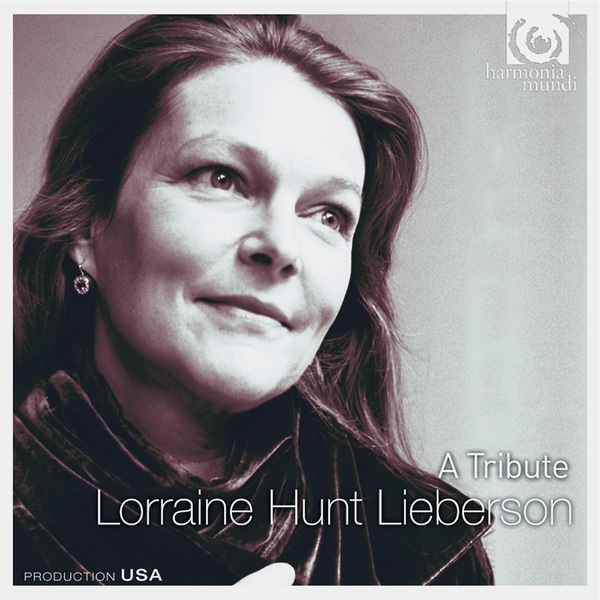
A Tribute to the sublime Lorraine Hunt Lieberson
By Sebastián Spreng, Visual Artist and Classical Music Writer
Five years after Lorraine Hunt Lieberson’s untimely death at 52, Harmonia Mundi releases a magnificent tribute to the lamented American mezzo-soprano. On two generous CDs, it’s a remarkable compilation of several recordings the singer made between 1989-1995 under conductor Nicholas McGegan and the Philharmonia Baroque Orchestra, a partnership that made history in the world of music.
It was said of Margot Fonteyn that she had the innate capacity to move audiences to tears without meaning to, much like Edith Piaf and Charlie Chaplin, whose charisma and communication with the audience overcame all hurdles and involved much more than a gesture, voice or looks. Lorraine Hunt Lieberson belongs to that exclusive club.
In their urgency and conviction, every performance, every recording, appeared to be her last, leaving irrefutable testimony of her greatness.
Her death is just an anecdote that does not affect that essential feeling that from the very beginning she brought to her singing. Such intensity is present from her earliest to her final recordings, a quality much in evidence in this collection.
Maria Callas wisely alerted singers: “Don’t sing Mozart on your tiptoes.” Lorraine was the very incarnation of her words when applied to Mozart, his predecessors and, specially, Handel. The edition includes LHL definitive Ariodante, Susanna and Theodora (later, she will perform an equally definitive Irene at the Glyndebourne Festival), the three big roles she recorded under McGegan’s peerless leadership, thus contributing to the cause of historically informed performances.
Fortunately, there’s more Handel: scenes from the Messiah (a spine-tingling He was despised and I know that my Redeemer liveth), the arias from the cantata Clori, Tirso e Fileno (with a riveting Barbaro tu non credi!) and several composed for Margherita Durastanti in his operas Radamisto, Ottone (Gismonda), Giulio Cesare (Sextus) and Arianna. As encores, the famous Bist du bei mir, attributed to Bach, and the never more appropriate, When I am laid in earth from Purcell’s Dido and Eneas.
In the natural devotion of her approach to singing, the ferocity of her attacks and impeccable legato, in the opulence of a timbre full of intuitive accents varnished with unmistakable color, she was the embodiment of “a primal feminine force that connects the earth to the sky with lightning bolts,” as Peter Sellars states.
If all these praises appear excessive, they’re not. Suffice it to say she is a highly addictive singer and an unbeatable gateway to the pleasures, delights and torments of the baroque. An American legend, unforgettable and nowadays much needed kind of artist. Neither soprano nor mezzo-soprano but rather both, she defined her credo better than anyone “I’m in the business of soaring. And diving deep.” All we need to do to is just listen.
Enjoy this excerpt from Handel’s Theodora at Glyndebourne
LORRAINE HUNT LIEBERSON, A TRIBUTE – HMU 907471.72
Recent Content
-
Artsarticle ·
-
Artsarticle ·
-
Artsarticle ·

